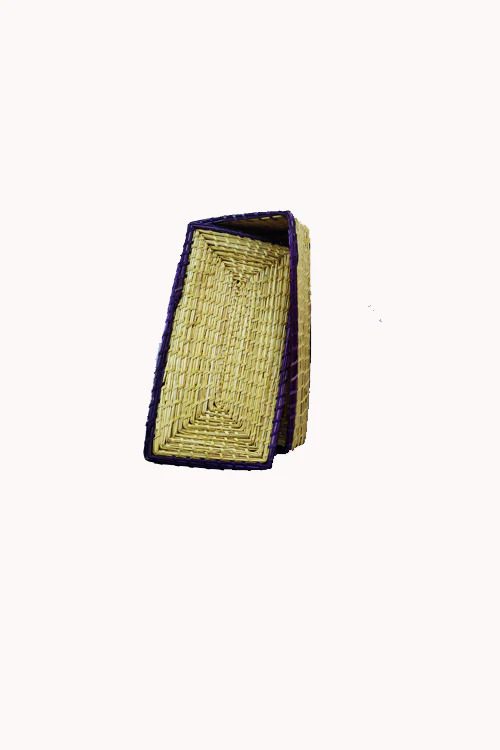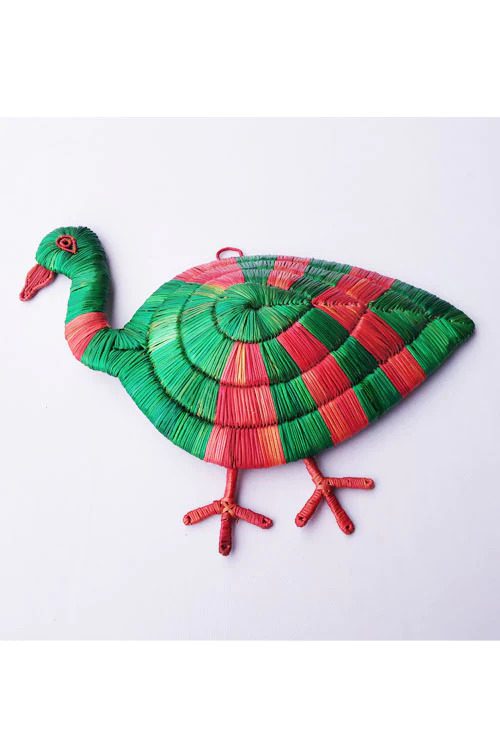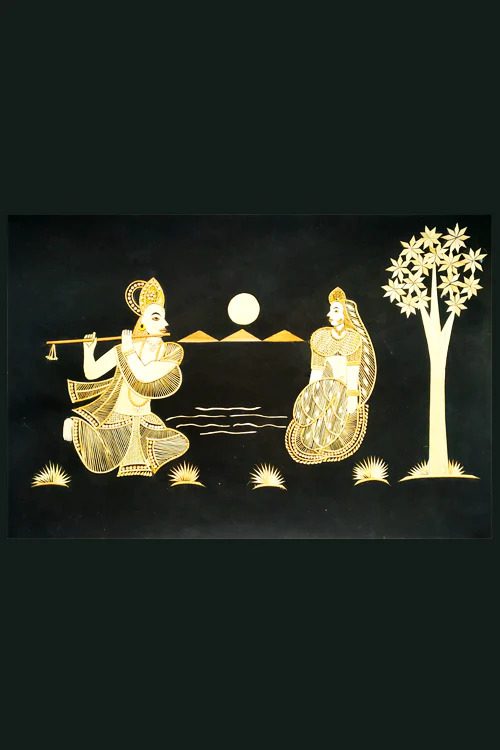About Sudhira Sikki Kala,
Radha Kumari an extremely skilled sikki weaver, is a third generation artisan of her family. She was born and brought up in a village called Raiyam in Madhubani, in the heart of mithilanchal. It is quite uncanny for girls her age of the current generation taking up the craft as there’s very
limited scope to it, at least in the minds of the artisans who have been practicing it for generations. Commercial usage of sikki is a recent phenomenon. Radha learnt the craft from her grandmother and her parents, all of whom are state awardees for Sikki Craft. Her mother, Sudhira Devi also won a national award alongside a state honor. It is interesting to know that despite being from marginal backgrounds and
skilled in this craft, Radha and her two sisters never abandoned their formal education. Radha is in fact, an English Literature Graduate. Through her hardwork and dedication, she hopes to show people the lost value in traditional crafts.Radha is also very open to new product explorations and strongly advocates the idea of replacing plastic with sikki
products wherever possible.
Using Sikki grass was an integral part of the living heritage of the
women of the part of Northern Bihar, which is known as Mithila. The
Sikki grass craft has thus been existing for hundreds of years, and it
is difficult to ascertain exactly how old this craft is. This craft being
used for commercial use has been a more recent phenomenon, over
the last couple of decades. Earlier it was crafted for household usage and even for bridal trousseau. The sikki is characterized by its wonderful beautiful golden colour,so it is also called as Golden Grass elsewhere. With the digitisation of life itself to such a high degree, women in Bihar have diverted their attention from this traditional craft. This has decreased the popularity of forms such as Sikki. Another reason for this decline is the abundance of industries in the surrounding areas. Industrial environments are unsuitable for the growth of Sikki grass. Even though the form
is on a decline, it is practised in certain areas such as Madhubani,
Darbhanga and Sitamarhi. In order to revive the form, one needs to look at a compromise between traditional and contemporary implementations of it. Although Maithil women have been making beautiful utility products for centuries, now they are aware of the choice of the customers and are trying to make different products according to the demand of the market with respect to the design and shapes. They make different types of containers withcaps to store grains and food, small boxes (Pauti) to keep jewellery and dry fruits and other costly items, trays (Mauni) for fresh fruits and flowers etc. The variety of products ranges from the traditional masks of Deities to modern mobile cases. Some craftsmen are now experimenting to make sikki products without using munj for coiling purposes.





